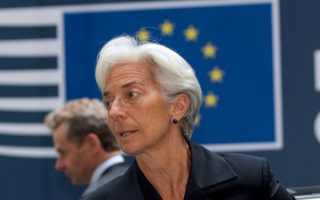Austerity not to blame for Greece’s poor export performance

The Greek economy is beating records – unfortunately negative ones. The recession has now been deeper, and lasted longer, than any other comparable case one can think of. Only the Great Depression of the 1930s had similar costs in terms of output and employment.
But during that period the entire world experienced a deep recession and protectionism restricted commerce. Today the global environment is very different.
Greece’s closest economic partners in the euro area have been growing for over three years, the US for much longer and the world economy as a whole never stopped growing, even during the severe, but short-lived, recession of 2009.
The peculiarity of the Greek case comes into much sharper focus if one compares it with the Asian crisis, or other program countries in the euro area. In all these cases, the countries involved faced a sudden stop in their capital inflows and thus had to adjust expenditure sharply. In all of these cases the economy recovered much more quickly.
What accounts for this difference? What has made the Greek recession so long and deep?
The short answer is exports, or rather the lack of export growth.
In Asia, and in all the other countries of the European periphery (and indeed in most of the dozens of countries which underwent an IMF program over the past few decades), growing exports provided vital support to the economy, at least partially offsetting the reduction in demand from the government sector, which had to slash expenditure and increase taxes to balance the books.
This is particularly evident if one looks at the Asian crisis, which caused a major recession in South Korea and Thailand, among others. This recession was much shorter and shallower than the one experienced by Greece (and also shallower than the recession in other euro-area peripheral countries).
In the cases of South Korea and Thailand, five years after the crisis exports had provided a contribution to growth worth about 25 percent of GDP – equivalent to a contribution to growth of about 5 percent each year.
In Asia, export-led growth was aided of course by the fact that the nominal exchange rate could adjust. These countries experienced a large devaluation, which made them more competitive.
Euro members, including Greece, cannot change their exchange rate and had to go through the much slower and more painful process of internal devaluation to reduce relative prices and wages and regain competitiveness.
The best comparative case for Greece might thus be Portugal, which is of a similar size and a similar level of development. Portugal, too, displays the classic adjustment pattern: While the public sector spent less, exports contributed a positive impulse worth over 9 percent of GDP over the first five years of the adjustment program.
Greece is the only country where exports did not make a positive contribution to growth after the crisis. On the contrary, exports have fallen in real terms and have subtracted about 5 percent from GDP growth.
This is the real Greek tragedy: Even though wages have fallen by a quarter and there are so many looking for work, exports have failed to provide a motor for growth.
One can easily blame the foreign creditors for imposing austerity, but they cannot be held responsible for the lack of export dynamism.
Only the Greek government, Greek enterprises and the social partners in Greece can lay the groundwork for export-led growth, which is the only sustainable escape route from the present misery.
* Daniel Gros is director of the Center for European Policy Studies in Brussels.





